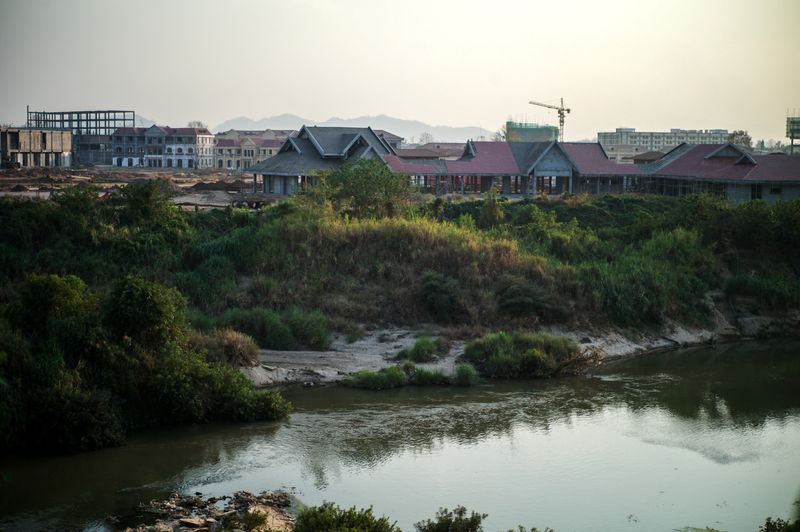By Poppy McPherson and Panu Wongcha-um
BANGKOK (Reuters) -A jailed gambling tycoon fighting extradition to China received "inhumane treatment" in a Thai prison after saying he was a Chinese spy, his lawyers have told Interpol, saying they fear for his life.
China-born She Zhijiang, who has Cambodian citizenship, has suffered violence that has left him unable to stand and has received unwanted visits from Chinese officials, the lawyers said in a letter to the international police organisation, seen by Reuters.
The tycoon was arrested in Bangkok in 2022 on an international warrant and an Interpol red notice sought by Beijing, which accuses him of running illegal online gambling operations in Southeast Asia. She and his lawyers have said the case is politically motivated.
In their letter to Interpol, dated Jan. 9 and shared with Reuters, the lawyers said he has been kept in solitary confinement, chained, denied medical treatment for a spinal injury and denied contact with his family.
The tycoon has been subjected to "particularly inhumane treatment" and human rights violations of an "institutional nature", wrote the lawyers, Clara Gerard-Rodriguez and Pierre-Olivier Sur of the France-based firm FTMS Avocats.
"These elements lead us to seriously fear for our client's life," the lawyers added.
China's Foreign Ministry told Reuters in a statement that She was a Chinese national and a "key figure in online gambling and telecom fraud crimes", saying the evidence against him was "conclusive".
It welcomed a decision made by Thai courts to extradite him, calling the step an important achievement in Thai-Chinese law enforcement cooperation. She's lawyers are appealing the extradition ruling.
Thailand's Ministry of Justice declined to comment, referring questions to the Department of Corrections, which did not immediately respond.
An Interpol red notice must comply with the organisation's rules, "under which activity of a political, military, religious or racial nature is strictly forbidden", an Interpol spokesperson said, declining to comment further.
TRAFFICKING SYNDICATES
She said last year that his detention followed his refusal to obey orders from Chinese authorities, who he said had instructed him to develop a town on the Thai-Myanmar border.
"They wanted a colony. I wanted to do business," She told the Al Jazeera network in a documentary broadcast on Sept. 26.
China has stepped up pressure on Southeast Asian nations to crack down on Chinese-origin gambling and fraud gangs since the abduction and cross-border rescue of a Chinese actor this month triggered a social media firestorm.
The region in recent years has become a magnet for gambling operations, some involving fraud and human trafficking by criminal syndicates, many of which are of Chinese origin.
Days after the Al Jazeera documentary aired, She was transferred to a maximum security prison in Bangkok that holds people serving long sentences and on death row, his lawyers said.
In late October, the lawyers said, She was "brutally tackled" by officers and inmates who accused him of violating discipline. Unable to walk or stand, he now uses a wheelchair, they said. The incident was also described in a police report seen by Reuters.
Twice in December, the lawyers said, Chinese embassy officials visited She in prison against his will, seeking to persuade him to return to China. In one meeting, they said, the officials suggested his family and friends might need help from the embassy, which he interpreted as a threat.
GAMBLING EMPIRE
She's lawyers are seeking to quash the Interpol red notice seeking his extradition.
"The blatant abuses of process and gross human rights violations committed by China undermine international judicial cooperation and should by themselves be an obstacle to extradition," Gerard-Rodriguez told Reuters.
Reuters could not independently verify the claims.
At the time of his arrest, She headed a gambling empire that developed a $15 billion casino, entertainment and tourism complex called Shwe Kokko on the Myanmar-Thai border. The group, Yatai International Holdings Group, also had investments in Cambodia and the Philippines.
The company has denied involvement in any criminal activities, including human trafficking.
The tycoon told Al Jazeera he was recruited in the Philippines by China's Ministry of State Security, the main agency overseeing foreign intelligence, in exchange for the dropping of a criminal case against him.
China's Ministry of State Security could not be reached with a request for comment.

She said he had worked alongside a former Philippine mayor, Alice Guo, also known as Chinese national Guo Hua Ping. She was removed from office for misconduct and investigated by the Philippine Senate last year for potential ties to offshore gambling operations targeting Chinese clients.
Guo, facing graft and money laundering charges, has denied being a Chinese spy and rejected other accusations as malicious.